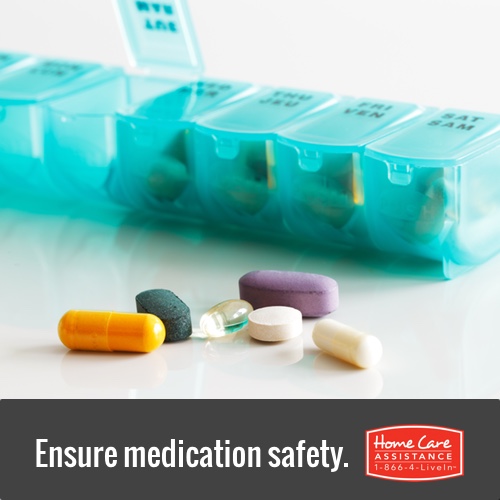The Art of Aging Well
We provide customized hourly and around-the-clock care to older adults so they can live happier, healthier lives at home.
Download by: Maria Licoudis, R.N. & Care Manager
by: Maria Licoudis, R.N. & Care Manager
Seniors, aged 65 or older, are the largest consumers of medications and often take multiple types. Proper medication management and preventing possible adverse side effects, is critical when caring for the elderly. Unfortunately, because of the large volume of medications prescribed by physicians combined with the use of other supplements and vitamins, overmedication and drug interactions are common.
Seniors sometimes have a difficult time keeping their medication schedule correct. The main problems are that they take too little, take none at all, administer their medication at the wrong time, or perhaps mix their medications with other medications or supplements that they shouldn’t combine them with. Everyone should be very careful and diligent when organizing their medications. Proper medication management is even more critical with the senior population. Declines in memory, hearing, vision, hand eye coordination and strength, put seniors’ more at risk when handling medication.
Family members and caregivers, play a crucial role in ensuring that medications are administered safely and correctly.
Safe medication management tools for family and caregivers include:

Always remember that the elderly are very vulnerable to drug side effects and interactions. We must always supervise and report their physical and cognitive abilities and any changes so that medication can be adjusted accordingly.
Note: This information is for informative purposes only. Always check with a medical professional.